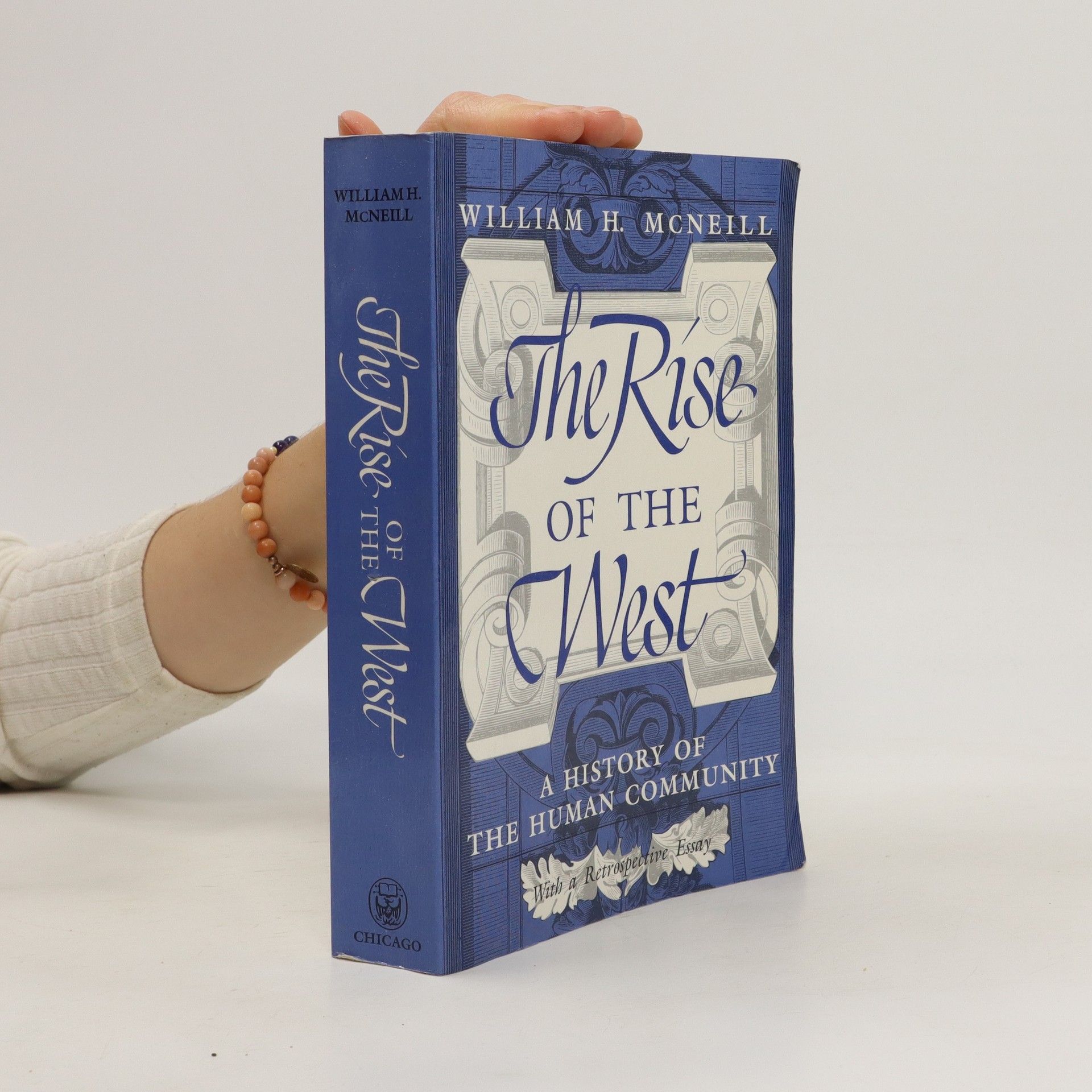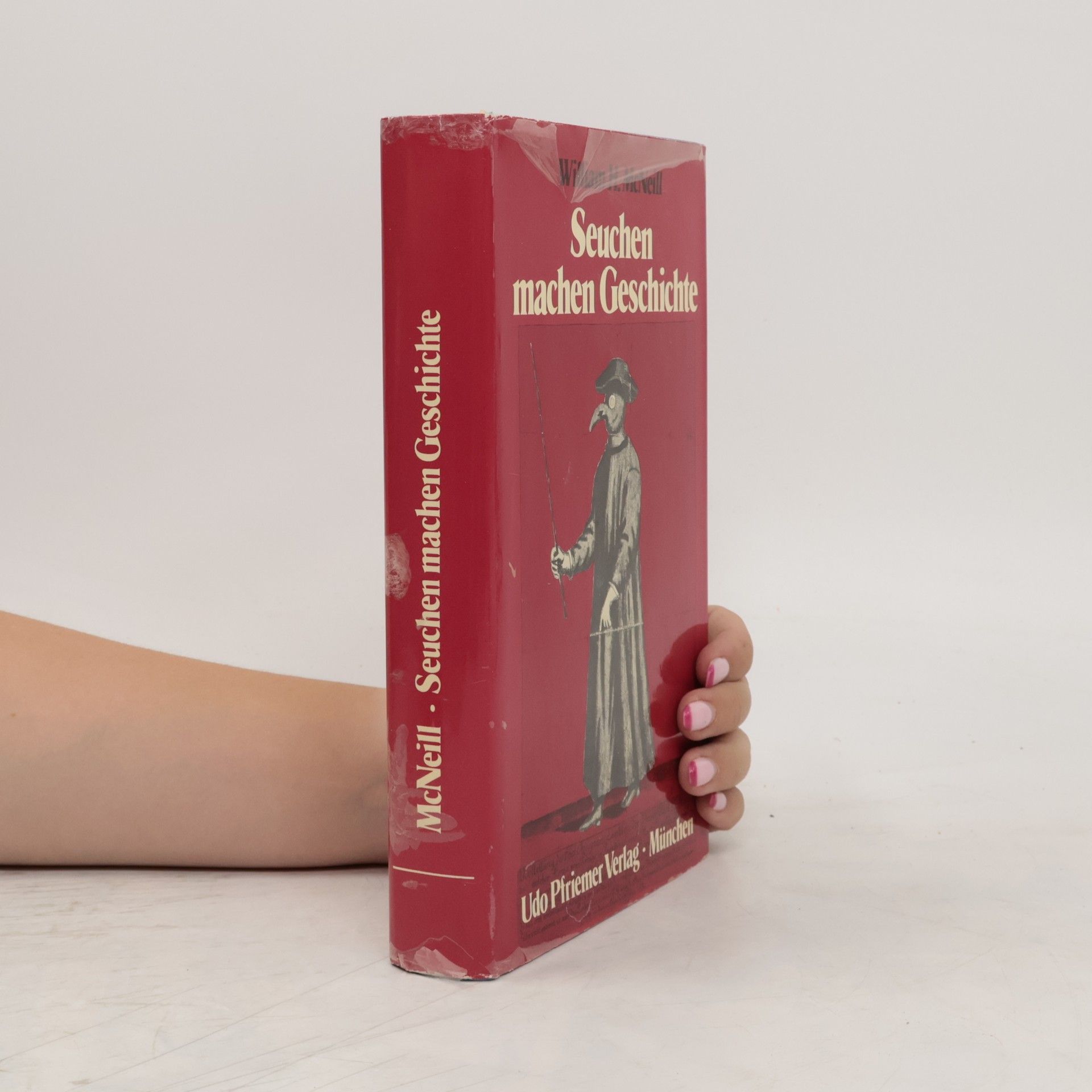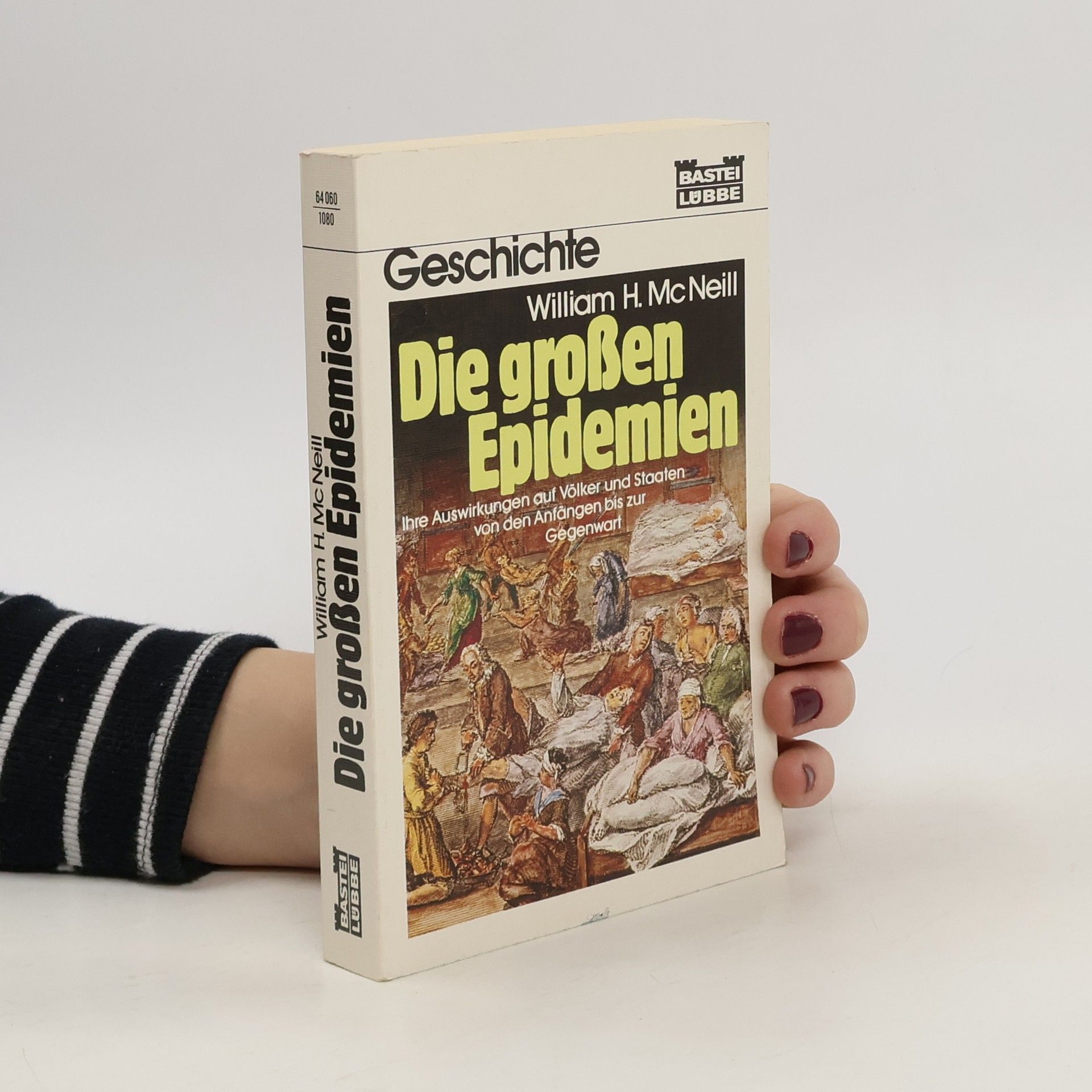William Hardy McNeill Bücher
Das Werk dieses Historikers vertritt die Idee, dass Kontakt und Austausch zwischen Zivilisationen die treibenden Kräfte der Menschheitsgeschichte sind. Seine Schriften untersuchen langfristige Trends und die gegenseitigen Einflüsse zwischen Kulturen über Jahrtausende hinweg. Er analysiert, wie sich Zivilisationen durch Interaktion entwickeln und bereichern, und bietet so eine umfassende Perspektive auf die Weltgeschichte. Sein Ansatz betont globale Vernetzung und die Dynamik des zivilisatorischen Fortschritts.






In elf weit gespannten Bögen - 250 Schritte lang, 10 Schritte breit - schwingt sich die Brücke über die Drina. Bei Višegrad, einer bosnischen Stadt nahe der serbischen Grenze, führt sie über den Fluss. Seit Jahrhunderten ist sie ein Treffpunkt für Menschen von beiden Ufern, ist Trennlinie und Bindeglied zwischen Orient und Okzident. In seinem Meisterwerk entrollt Ivo Andrić ein gewaltiges Zeitpanorama vom 17. Jahrhundert bis zum Ersten Weltkrieg und erzählt von den vielfältigen Schicksalen der Menschen, die dort aufeinandertrafen.
In this synthesis of military, technological, and social history, William H. McNeill examines a millennium of upheaval, tracing the evolution of human dilemmas. He skillfully navigates from the crossbow—banned by the Church in 1139 for its lethality—to nuclear missiles, exploring the sociological impacts of military drill in the seventeenth century and the rise of the military-industrial complex in the twentieth. McNeill argues that the commercial transformation of the eleventh century increasingly aligned military activities with market forces, contrasting this with the emergence of command economies in contemporary times. While the work does not provide solutions to present issues, it offers insights and hypotheses that illuminate current fears, potentially guiding wiser actions. McNeill's vast erudition spans European, Chinese, and Islamic cultures, intertwining military, technological, socio-economic, and political developments. This grand synthesis highlights humanity's shared past, particularly regarding weapons and warfare, and emphasizes a collective stake in the future. The narrative reveals the paradox of human ingenuity applied to irrational ends, prompting reflection on why humanity has struggled to value its own existence.
The Rise of the West
- 860 Seiten
- 31 Lesestunden
The Rise of the West, winner of the National Book Award for history in 1964, is famous for its ambitious scope and intellectual rigor. In it, McNeill challenges the Spengler-Toynbee view that a number of separate civilizations pursued essentially independent careers, and argues instead that human cultures interacted at every stage of their history. The author suggests that from the Neolithic beginnings of grain agriculture to the present major social changes in all parts of the world were triggered by new or newly important foreign stimuli, and he presents a persuasive narrative of world history to support this claim. In a retrospective essay titled "The Rise of the West after Twenty-five Years," McNeill shows how his book was shaped by the time and place in which it was written (1954-63). He discusses how historiography subsequently developed and suggests how his portrait of the world's past in The Rise of the West should be revised to reflect these changes. "This is not only the most learned and the most intelligent, it is also the most stimulating and fascinating book that has ever set out to recount and explain the whole history of mankind. . . . To read it is a great experience. It leaves echoes to reverberate, and seeds to germinate in the mind."—H. R. Trevor-Roper, New York Times Book Review
The Pursuit of Power
- 416 Seiten
- 15 Lesestunden
Shows the interrelatedness of technical, military, political, and economic history and examines the changes introduced by the industrialization of war
Upon its original publication, Plagues and Peoples was an immediate critical and popular success, offering a radically new interpretation of world history as seen through the extraordinary impact--political, demographic, ecological, and psychological--of disease on cultures. From the conquest of Mexico by smallpox as much as by the Spanish, to the bubonic plague in China, to the typhoid epidemic in Europe, the history of disease is the history of humankind. With the identification of AIDS in the early 1980s, another chapter has been added to this chronicle of events, which William McNeill explores in his new introduction to this updated editon.Thought-provoking, well-researched, and compulsively readable, Plagues and Peoples is that rare book that is as fascinating as it is scholarly, as intriguing as it is enlightening. "A brilliantly conceptualized and challenging achievement" (Kirkus Reviews), it is essential reading, offering a new perspective on human history.
Renowned historian William H. McNeil provides a brilliant narrative chronology of the development of Western civilization, representing its socio-political as well as cultural aspects. This sixth edition includes new material for the twentieth-century period and completely revised bibliographies. An invaluable tool for the study of Western civilization, the Handbook is an essential complement to readings in primary and secondary sources such as those in the nine-volume University of Chicago Readings in Western Civilization.
